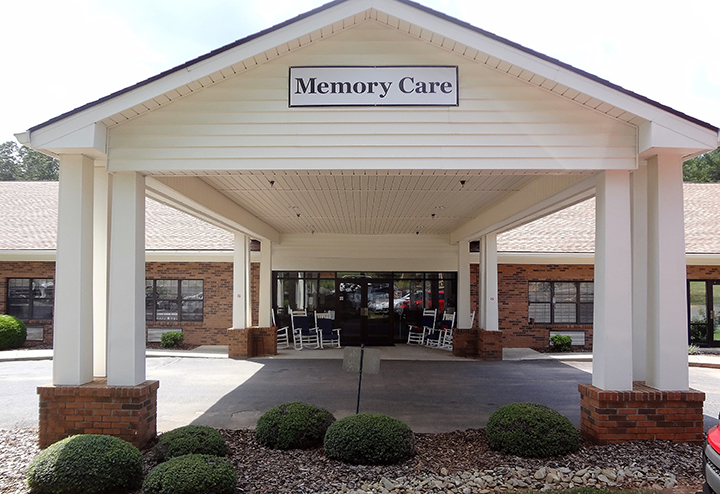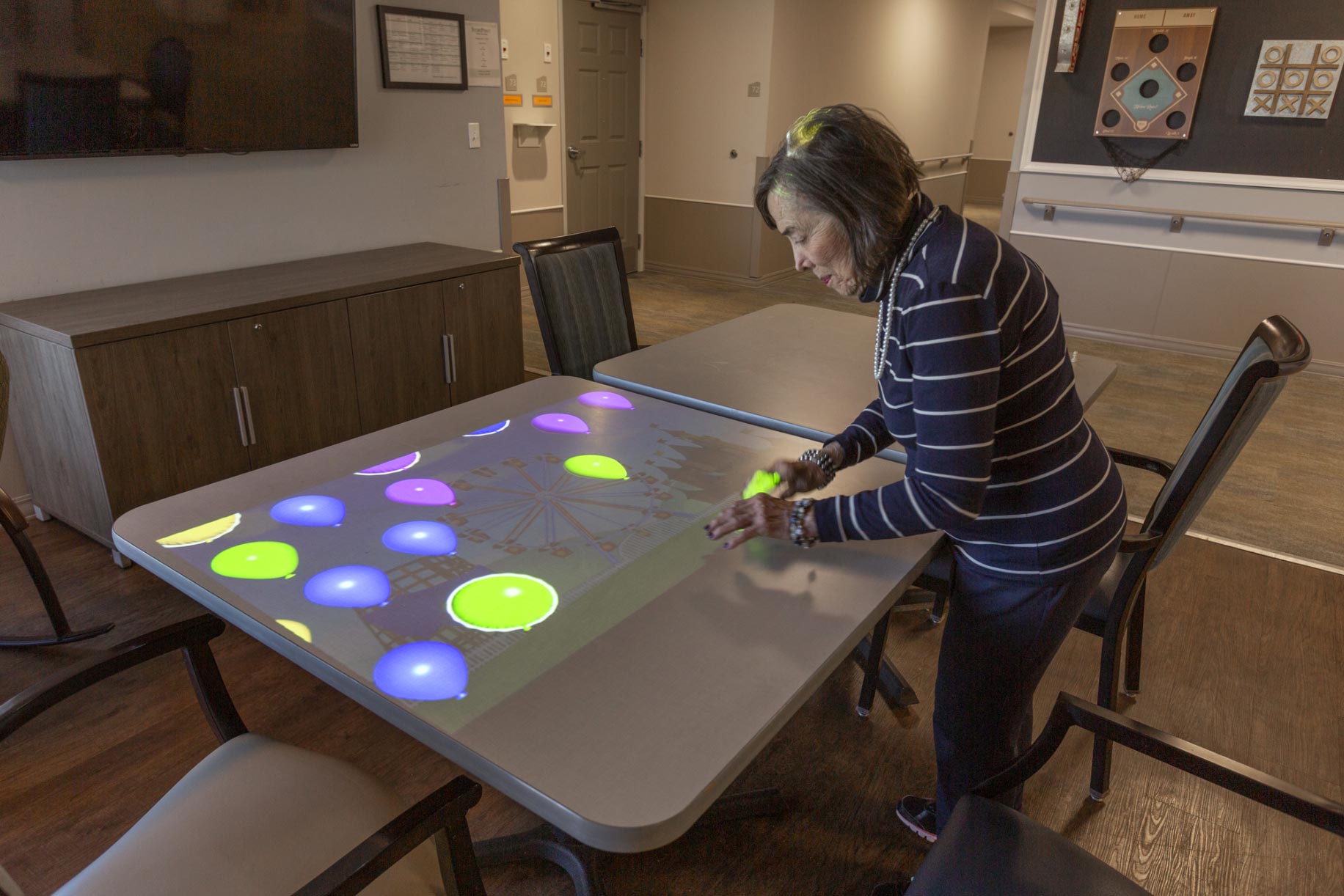Personalized Solutions for Households Looking For Alzheimers Care Charlotte
Compassionate Alzheimer's Look after Your Loved Ones
Acknowledging the mental and emotional needs of people impacted by this problem is extremely important in improving their quality of life. As we discover the different strategies and strategies that can transform caregiving right into a much more compassionate experience, it comes to be clear that the journey is as much about the caretaker as it is about the specific with Alzheimer's.
Understanding Alzheimer's Condition
Alzheimer's illness is a dynamic neurodegenerative condition that primarily impacts cognitive function, causing memory loss, damaged thinking, and modifications in actions. It is the most usual form of mental deterioration, accounting for 60-80% of all situations. The disease commonly manifests in people aged 65 and older, although early-onset Alzheimer's can happen in more youthful individuals.
The pathophysiology of Alzheimer's entails the accumulation of amyloid plaques and neurofibrillary tangles in the brain, leading to neuronal deterioration and synaptic loss. These changes disrupt communication in between mind cells, considerably impairing cognitive abilities and everyday performance. Early signs and symptoms might consist of difficulty remembering recent events and difficulties in analytic, which can rise to disorientation and trouble with language.
As the disease advancements, people might display extensive memory deficiencies, complication concerning time and area, and trouble recognizing loved ones. Behavioral changes, including anxiety, stress and anxiety, and withdrawal, may also occur. Understanding the clinical development of Alzheimer's is critical for caretakers and medical care carriers, as it educates efficient administration techniques and interventions customized to the demands of individuals affected by this debilitating problem.
The Value of Compassionate Care
Compassionate treatment is necessary in supporting individuals with Alzheimer's condition, as it substantially improves their lifestyle. This strategy focuses on the emotional and emotional health of individuals, fostering a setting that promotes dignity, understanding, and regard. People with Alzheimer's commonly experience confusion, anxiousness, and irritation, which can be relieved through thoughtful interactions.
Empathy in caregiving not just aids in identifying the unique requirements of each person but likewise reinforces the caregiver-patient relationship. When caretakers approach their duties with compassion, they produce a secure room where clients feel valued and recognized, which can reduce behavioral difficulties connected with the disease. This helpful atmosphere urges far better communication and interaction, assisting in an extra effective response to the care offered.
Additionally, thoughtful treatment expands past the patient; it also includes support for households. Caretakers that exercise compassion are a lot more outfitted to resolve the psychological burden faced by loved ones, offering peace of mind and assistance with a difficult journey. Ultimately, the significance of compassionate care hinges on its ability to change the caregiving experience, leading to boosted end results for both people with Alzheimer's and their family members.
Practical Caregiving Methods
Efficient caregiving for individuals with Alzheimer's disease requires practical strategies that resolve the one-of-a-kind obstacles presented by the condition. One of the leading approaches is developing a constant everyday routine, which can provide framework and knowledge, minimizing anxiety for both the caregiver and the person. Caretakers must likewise simplify jobs by breaking them down right into smaller sized, manageable actions, consequently enhancing the person's feeling of accomplishment and decreasing stress.
Interaction is another essential element; caregivers must use clear, straightforward language and preserve eye contact to cultivate understanding. Utilizing aesthetic hints, such as tags or photos, can better help understanding and navigation in the setting.
Security is paramount. Adapting the living room to get rid of threats-- such as protecting carpets or installing grab view it now bars-- can aid avoid crashes. Additionally, caretakers need to motivate freedom by allowing individuals to participate in familiar activities, which can bolster self-confidence and advertise well-being.
Psychological Assistance Strategies
Emotional health is a critical component of take care of people with Alzheimer's disease, as it directly affects their lifestyle. Alzheimers Care Charlotte. Providing emotional assistance strategies can considerably improve their day-to-day experiences and cultivate a complacency and belonging
One reliable strategy is active listening, which involves providing full interest to the person, acknowledging their sensations, and responding with empathy. This technique helps the person feel valued and comprehended, lowering sensations of seclusion or frustration. Additionally, utilizing validation therapy can be useful; as opposed to remedying false impressions, caretakers can attest the individual's experiences and feelings, advertising a soothing atmosphere.
Taking part in reminiscence therapy is one more effective technique, enabling individuals to share tales, memories, and feelings connected with their past. This not only stimulates cognitive feature yet additionally enhances emotional connections. Incorporating acquainted songs or art can likewise evoke favorable feelings and stimulate joyful communications.
In more tips here addition, making certain routine physical touch, such as holding hands or gentle hugs, can provide convenience and peace of mind, reinforcing emotional bonds. These strategies, when constantly applied, can develop a nurturing environment that supports the psychological wellness of individuals with Alzheimer's, boosting their general well-being.
Developing an Encouraging Environment

Firstly, take into consideration the physical layout of the home. Clutter-free areas, acquainted furniture plans, and distinct pathways can minimize complication and promote movement. Making use of soothing colors and ample lighting can even more improve the ambience, making it more inviting and much less frightening.
Second of all, consistency is important. Keeping a foreseeable daily routine assists people with Alzheimer's feeling extra secure. Familiar activities, routine meal times, and arranged social communications can dramatically reduce anxiety and disorientation.
Furthermore, sensory aspects play a crucial duty. Including acquainted aromas, songs, and responsive things can stimulate favorable memories and boost engagement. Individualizing the space with valued photographs and purposeful items can additionally foster a feeling of identification.
Conclusion
Caring Alzheimer's care substantially improves the lifestyle for individuals impacted by this progressive disease. By focusing on psychological health and carrying out efficient caregiving methods, caregivers can foster an environment that advertises self-respect and belonging. Methods such as active listening and developing regular regimens offer to minimize anxiety while strengthening the caregiver-patient partnership. Inevitably, this technique not only provides essential convenience and support but additionally equips individuals to browse the complexities of Alzheimer's with self-respect and poise.
As we discover the various approaches and methods that can change caregiving into an extra compassionate experience, it comes to over at this website be clear that the journey is as much regarding the caretaker as it is regarding the specific with Alzheimer's.

Thoughtful treatment is important in sustaining people with Alzheimer's disease, as it considerably improves their top quality of life - Alzheimers Care Charlotte. Inevitably, the significance of caring treatment exists in its capacity to transform the caregiving experience, leading to improved results for both individuals with Alzheimer's and their households
Thoughtful Alzheimer's treatment significantly enhances the quality of life for individuals impacted by this modern illness.